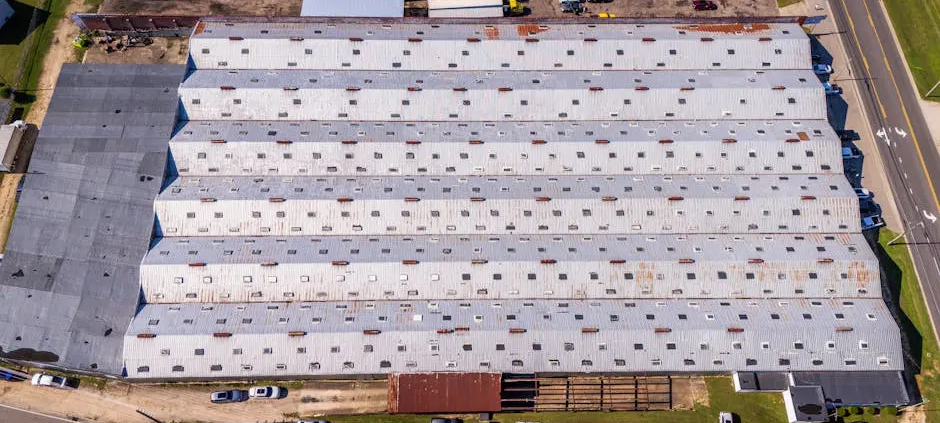15 Reasons Why Commercial Roofing Maintenance is Essential
Maintaining a commercial roof might not be the most glamorous of tasks, but it’s undeniably one of the most crucial aspects of building management. Quality roofing doesn’t last forever if it’s neglected. By staying on top of maintenance, you’ll ensure that your roof remains in great condition and avoid costly repairs down the line. Let’s dive into why regular upkeep is so vital.
1. Preventing Costly Repairs
Regular maintenance helps catch minor issues before they become costly problems, saving you money over time. By conducting periodic checks, you can spot potential leaks or structural weaknesses early on. This proactive approach means you can fix small problems for a fraction of the cost it would take to address a major roofing failure later. For instance, replacing a few damaged shingles is far less expensive than dealing with widespread water damage caused by prolonged neglect.
Moreover, addressing issues early can prevent disruptions to your business operations. Imagine the inconvenience and potential revenue loss that can ensue from unexpected repair work. By investing a little in regular maintenance now, you can sidestep these costly surprises, ensuring your commercial space remains functional and productive.
2. Extending Roof Lifespan
Consistent upkeep can significantly prolong the lifespan of your commercial roof, ensuring you get the most value out of your investment. A roof that is well cared for can last decades longer than one that is neglected. By regularly cleaning and inspecting your roof, you’re not only maintaining its current state but preventing its premature deterioration. Routine tasks such as clearing debris, fixing immediate damages, and applying protective coatings all contribute to a longer, healthier roof life.
3. Enhancing Building Safety
A well-maintained roof is crucial for the safety of the building’s occupants. Regular inspections help identify and mitigate potential hazards. Loose tiles or shingles can lead to dangerous accidents if left unchecked. Moreover, roofs are the first line of defense against external elements; thus, ensuring they are fortified is paramount for occupant safety. With weather becoming more unpredictable, it’s even more essential to confirm that the structural integrity of your roof is uncompromised.
4. Improving Energy Efficiency
A maintained roof contributes to better insulation, which can reduce energy costs and enhance overall building efficiency. When a roof is compromised, it may allow for heat escape during the winter or cause cooling loss during the summer. This can result in increased energy bills as your HVAC systems work harder to stabilize indoor temperatures. By ensuring that your roof is in good condition and properly insulated, you create a more energy-efficient building. This translates to lower monthly operating costs and a smaller environmental footprint.
5. Ensuring Warranty Compliance
Most roofing warranties require regular maintenance. Failing to comply could void your warranty, leading to unwanted expenses. It’s crucial to understand the terms of your roof’s warranty as periodic upkeep is often a stipulation. Dedicated maintenance not only preserves your roof but also safeguards your financial investment in the event of future roofing issues. Complying with these warranty provisions assures that if major issues arise, you can rely on warranty coverage to mitigate the financial burden.
6. Protecting Interior Assets
Prevent leaks and water damage that could jeopardize valuable assets stored within the building. Whether it’s inventory, equipment, or essential records, water intrusion can damage interior contents extensively and irreparably. By maintaining the roof, you bolster your building’s protection against unforeseen leaks, preserving the integrity and value of everything housed inside. Furthermore, preventing such issues upholds the operational capabilities of your business without disruptions stemming from asset damage.
7. Maintaining Aesthetic Appeal
A clean, well-cared-for roof enhances the overall appearance of your building, making it more appealing to clients and visitors. First impressions matter; a pristine roof can uplift the façade of your commercial property, creating a positive perception for onlookers and potential customers alike. Regular maintenance ensures the roof retains its visual appeal, preventing unsightly moss growth, discoloration, or damage that could undermine the professional image your business seeks to project.
8. Reducing Liability Risks
By regularly checking your roof, you reduce the risk of injuries and accidents caused by roofing failures or hazards. Extensive damage left unaddressed can lead to parts of the roof collapsing or debris falling, posing significant safety threats to both employees and visitors. Routine inspections help mitigate these risks, protecting you from potential legal liabilities and the associated costs. Ensuring your roof is safe reflects a commitment to the well-being of everyone who enters your premises.
9. Avoiding Business Interruptions
Roofing issues can disrupt business operations. Regular maintenance prevents unexpected disruptions and ensures continuity. Consider unexpected leaks or damage that could render parts of your building unusable for days or weeks. By systematically addressing minor roof issues, you prevent larger complications from causing significant downtime, allowing your business to operate without interruptions.
10. Preserving Property Value
A well-maintained roof helps uphold the value of the property, making it more attractive when it comes time to sell. Potential buyers and investors view a property with updated and cared-for roofing more favorably. It signals that the building has been attentively looked after, reducing hesitations related to future expenses on repairs or roofing replacements.
11. Boosting Resale Potential
Buyers are more interested in properties that don’t require immediate roofing work, making maintenance a key selling point. In competitive real estate markets, the state of a commercial roof can be a decisive factor in negotiations. Roofs that require no immediate attention provide assurance of stability and reliability, attributes that appeal to prospective buyers.
12. Staying Ahead of Weather Challenges
With changing weather patterns, maintaining your roof ensures it’s ready to withstand even the harshest conditions. From torrential rains to heavy snowfall, a well-maintained roof protects your building from nature’s unpredictability. Keeping an eye on potential weak points and reinforcing them prepares your roof to handle climatic challenges without a hitch, ensuring it remains impervious to environmental threats.
13. Reducing Long-term Costs
By spending a little on routine maintenance now, you save a lot on potential major repairs in the future. Neglecting your roof might save money in the short term but often leads to costly repairs down the line. Regular check-ups and early interventions can prevent severe degradation, allowing you to manage long-term expenditures more effectively. Economically, it’s an investment in financial practicality and foresight.
14. Gaining Peace of Mind
Knowing your roof is in great condition allows you to focus on other aspects of your business without worry. Alleviating concerns over potential roofing issues can be immensely liberating, enabling you to prioritize core business functions. This peace of mind fosters a productive environment where energy is directed towards growth and innovation rather than addressing preventable building troubles.
15. Enhancing Customer Trust
A building in good repair reflects well on your business, instilling confidence in clients and partners alike. When clients visit your premises, the state of the building subtly communicates the diligence and attention to detail your business upholds. A property that’s in pristine condition, particularly the roof, gestures to a robustness and reliability that clients find reassuring. It’s an indirect yet impactful aspect of building customer trust and assurance.








